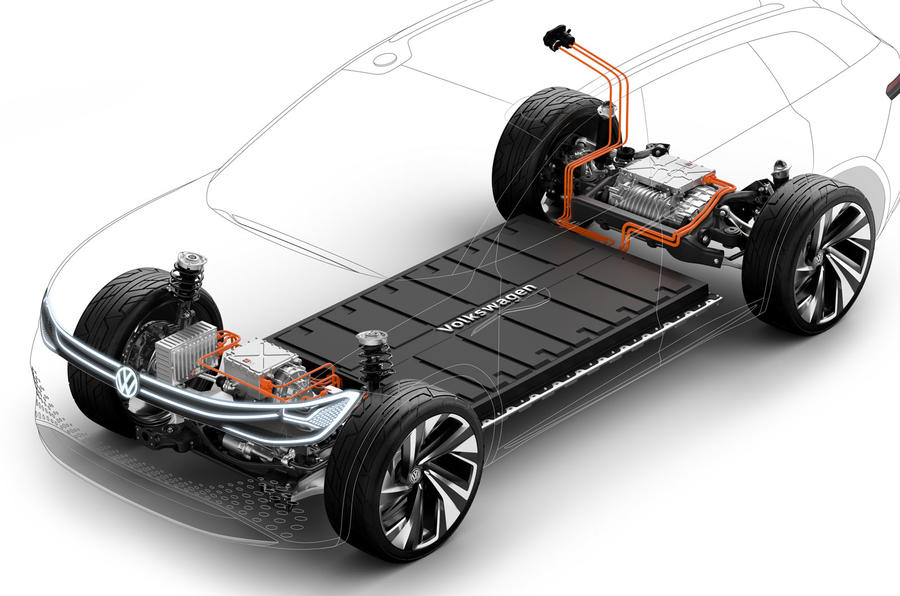No doubt that the future of personal automobiles will be electric. While we are still early in the transition, and regardless of how valuable Tesla is as a company (ridiculously overvalued) compared to how few cars they sell and deliver, their dominance of electric cars is tenuous. Already VW and GM have announced plans to migrate their fleets to full electric, and all the other makers are making plans for a post oil driven transportation world.
This is good. But it does have some thorny implications. Two of which are how to fund local road building and maintenance, and mechanics/technicians to repair the fleet of cars.
Funding Roads
This is the more immediate concern. There are two factors here, but both are related. In the US, roads are built and maintained with funds derived from gasoline taxes. Each state sets the tax amount and the collected funds are then used to build and maintain the infrastructure for transportation.
But there are two attacks on this. First is that the rising fleet requirements to increase fuel efficiency in passenger cars and light trucks means less fuel per mile traveled. Thus, less revenue is generated because for the same distance traveled, less gasoline is consumed, leading to a declines in revenue, and road maintenance suffers. If you have tons of potholes, and poorly maintained local and regional roads/highways, this is one factor. Of course, this could be addressed by raising the per gallon tax rate for gasoline, but even in solidly blue states this is hard to do. Americans truly believe it is their birthright to have cheap gasoline.
The second attack is electric cars. Since they don’t consume gasoline, their miles on the road are free riding. There is no funding mechanism to account for their wear and tear on the infrastructure. Thus, they truly do not pay their way.
Now, about 2-3% of new vehicles are electric, and in much of the country, sighting a Tesla is a rarity, as the electrification of the fleet will mean that a new mechanism to tax miles driven verses gasoline consumed will need to be devised.
This will not be easy, because there are strong lobbying forces arrayed to prevent this. But this is a battle that needs to be fought, as roads are needed. Almost all modern cars have some telemetry capability, and connectivity, so it seems reasonable that a consumption based funding mechanism can be enacted to tie amount owed to the miles driven.
But getting this enacted will be ugly with a capital ‘U’.
Will Anybody Think about the Techs?
100ish years of the automobile has built an efficient market, and ecosystem. Modern dealers make most of their money maintaining automobiles, and they are heavily invested in making that a cost effective for the driver, yet pleasant experience. They have modern garages, huge inventory of parts, and an extensive logistics system that can get odd or rarely needed parts for a repair to a shop lickety-split, and deliver a very satisfying experience to the owner.
After the vehicle is out of warranty, many people still return to the dealer for service, especially if they have a good experience. But if not, there is a huge variety of local shops and specialty shops that benefit from the auto trade.
One of the quandaries will be the impact of electric cars. Article after article has been written and published about how the number of major parts is down in electric cars, that batteries and advanced electric motors are paired to simplified drivetrains, with fewer moving parts, and – ultimately – less repairable parts. You in general don’t disassemble a battery pack to replace a defective cell (actually, with Lithium Polymer batteries, that can be quite dangerous), and a drive motor will be replaced as a FRU or Field Replaceable Unit, so the lengthy education and training for technicians will become a thing of the past.
And therein lies the crux. There will be a drop off in the demand for ASE certified technicians, and their opportunities will decline, and in probably two generations (40ish years) this will become a niche profession, akin to COBOL programmers.
Bummer. Because a path to a solid career, achievable for those who are not enthusiastic about college, and the careers that launches, will be closed. Not because of automation, but because a world of electric cars will have less complexity, and need for skills. Skills to diagnose a mechanical issue, to properly repair, and to deliver value. Sure, motors and bearing will wear out and need to be replaced. But there will be a lot less of that happening.
Summary
There are surely more issues with the transition, and the expectations will shift with time. As fully electric cars become the norm, the implications will be vast. Some of them are policy related, and some are tied to the labor force.
All of them will need to be addressed
